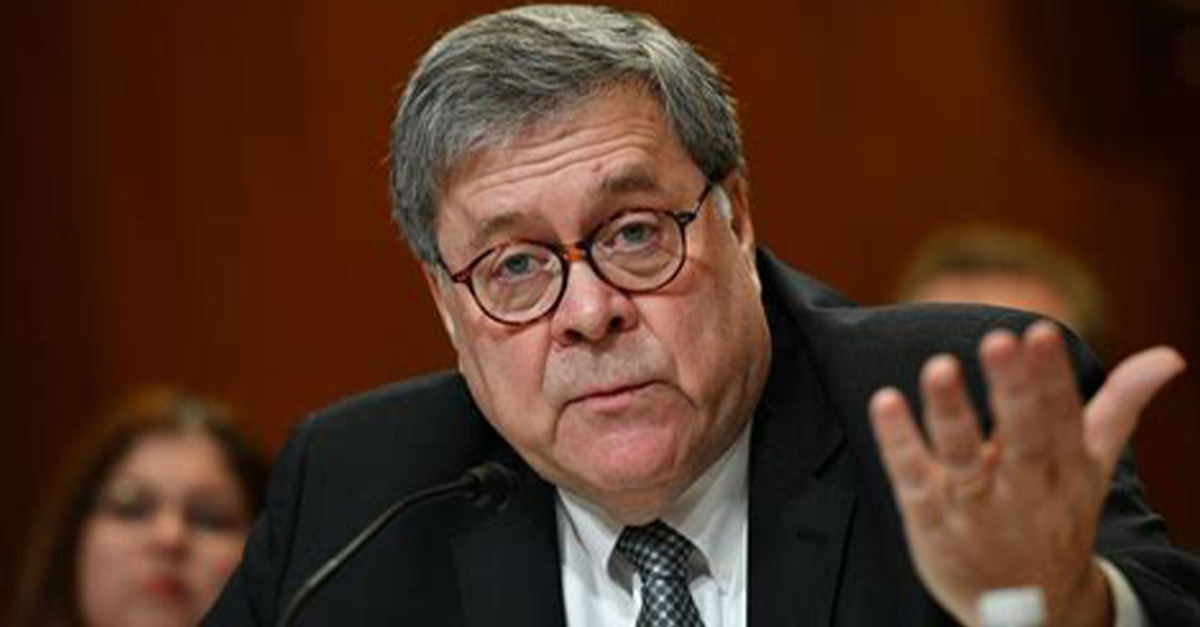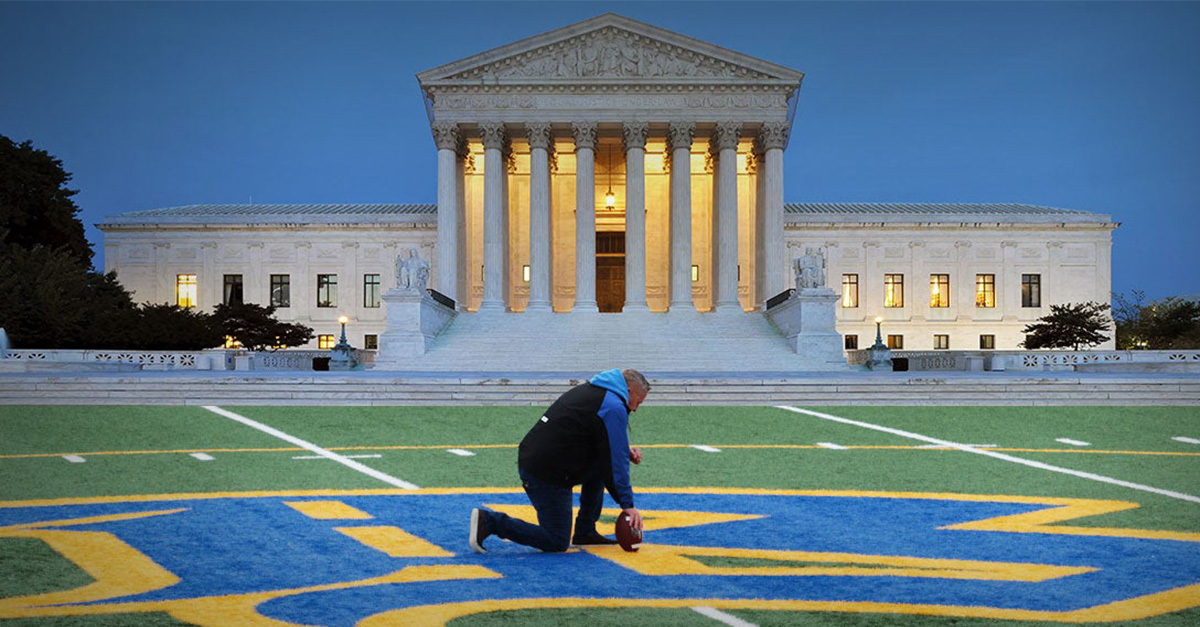


Get a free copy of Parental Rights & Education when you subscribe to our newsletter!

Former U.S. Attorney General William Barr spoke at a Christian conference in Chicago on Saturday where he said that the hostility in public schools towards religion has created a crisis in Western civilization greater than any since Christ, and that to fix the damage, parents need school choice.
Speaking at the “Issues, Etc. Conference,” Barr said, “We are going through a fateful crisis in western civilization. This is the deepest crisis we’ve faced in my mind since Christ.” He elaborated, “That’s because our whole civilization is based on the Judeo-Christian tradition and that tradition is under sustained attack by increasingly militant secular forces.”
Barr claimed that religious exercise has been under assault by anti-religious elements that he called an atheocracy or atheist theocracy. As a materialist worldview takes over, he explained, a society is drawn to the desire to establish a utopia, a desire that sees existing structures, particularly religion as a threat to earthly paradise.
“These ideas are represented by the progressive movement in the United States,” he said. “It basically is an ersatz religion that gives them a sort of truncated version of the place filled by religion in people’s lives. It also explains the bitterness in our politics today. Because once you adopt this view, then your political opponents aren’t just disagreeing with you, they’re evil. They are standing in the way of the salvation of mankind.”
He added:
“Another part of this revolutionary era and the consequences we have been witnessing over the last couple of hundred years is a worldview that boils questions of morality solely down to an individual’s internal feelings. And their interior sense of pleasure and satisfaction. That’s how we gauge acts, whether people feel internally satisfied. And anything that advances that feeling is good, and anything that constrains or restricts that feeling is bad. This is a fundamental change in the worldview of the West.”
Barr said that schools once helped instill basic Western values and a sense of national unity but have since adopted values contrary to American governance. “The curriculum is now attacking the fundamental legitimacy of our form of government and our founding documents. That’s no way to bring us together as a nation.”
He added, “You can’t finesse it anymore. You can’t pretend what’s being taught in schools is compatible with traditional religion, nor can you pretend schools are neutral anymore.”
Barr claimed the path to solving the problem is to give parents choice in their child’s education. School choice alone won’t save Western civilization, but Barr sees it as critical. “It’s not a panacea, but I cannot see a way out for us and the way for Christian citizens to live in peace in this republic until we address the educational system.”
The school choice movement was aided just last week when the Supreme Court ruled that states cannot ban religious schools from participating in tuition assistance programs. In another religious liberty win, the Supreme Court ruled today that the Bremerton School District had unfairly fired head football coach Joseph Kennedy for exercising his religious beliefs by praying privately at midfield. Writing for the majority Justice Neil Gorsuch noted the school had taken a hostile approach to religion.

The hostility towards religion by public school officials is built on fallacious premises. One of these falsehoods that schools live by is that in teaching a secular view, they are being religiously neutral. A religion is not a religion simply because it involves a belief in God. Religions are beliefs about key questions regarding human existence, such as: Why are we here? How did we get here? Is there a god? What is the meaning of life? Where does morality come from? How do we determine right and wrong? What happens after death?
These are all topics which secularism has a staunch answer for. Believing and teaching that there is no god and that we all got here through chance is a religious belief. Teaching that morality is subjective is a religious belief. Believing that striving to achieve a state of happiness should be the highest goal of earthly life is also a religious belief. Simply because the left has substituted humans for God does not mean that they are religiously neutral.
The Bible says in Romans 1:20-23,
“For since the creation of the world His invisible attributes, His eternal power and divine nature, have been clearly seen, being understood through what has been made, so that they are without excuse. For even though they knew God, they did not honor Him as God or give thanks, but they became futile in their speculations, and their foolish heart was darkened. Professing to be wise, they became fools, and exchanged the glory of the incorruptible God for an image in the form of corruptible man and of birds and four-footed animals and crawling creatures.”
Secular humanism or atheocracy is very similar to Epicureanism, a Greek ideology whose followers believed that one’s individual happiness was the primary goal in life; that matter just happened to always be, meaning there was no such thing as creation; that there were only human laws, not higher moral laws; and that if there were a single god or any gods, none of them had any interest in the matters of men.
Paul confronted this so-called “non-religious” set of beliefs in Acts 17:22-23, when he noted that
“in every way you are very religious. For as I walked around and looked carefully at your objects of worship, I even found an altar with this inscription: to an unknown god. So you are ignorant of the very thing you worship.”
The Apostle Paul declared God’s sovereignty, His love for humanity, His involvement with His image bearers, and the reality of a higher moral law in Acts 24:31, and throughout the New Testament.
Choosing not to worship God doesn’t mean that you don’t worship anything. That schools — and so many in government — actually believe that their secular beliefs are not a form of worship is a major threat to our Constitution and America’s greater religious liberty tradition, as Barr says. In fact, whether you want to refer to it as atheocracy or secular humanism or paganism, the state is increasingly establishing a set of core beliefs as a state religion — and forcing others to live by its doctrines to the exclusion of all other beliefs.
Rescuing children from indoctrination through school choice legislation is a good first step to addressing this threat, but a second might be for a good constitutional law firm to take a religious liberty case and argue the point that it’s not Christians and their beliefs that are violating the Establishment Clause — it’s the government and its dogmatic embrace of secular humanism.
